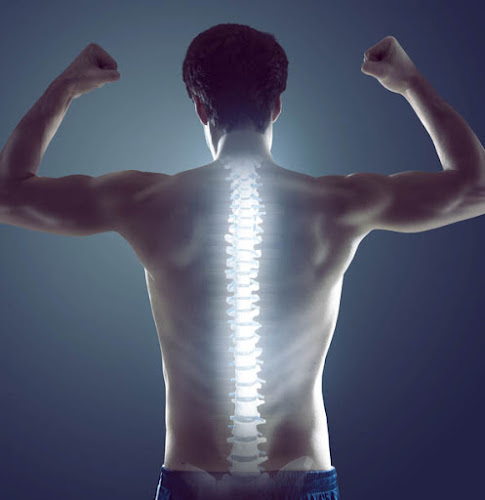5 Signs You Should See a Chiropractor for Your Herniated Disc
A herniated disc, also known as a slipped or ruptured disc, occurs when the soft inner core of the spinal disc pushes through the tough outer layer. This can result in pain, numbness, or weakness in the arms or legs, depending on the location of the herniated disc. The most common cause of a herniated disc is age-related wear and tear, but it can also be caused by improper lifting, repetitive movements, or sudden trauma. Understanding the symptoms and causes of a herniated disc is crucial in determining when to seek treatment from a chiropractor.
Herniated discs can occur in any part of the spine, but they are most common in the lower back (lumbar spine) and the neck (cervical spine). The symptoms of a herniated disc can vary depending on the location and severity of the herniation. Common symptoms include pain, numbness, tingling, and weakness in the affected area. In some cases, a herniated disc can also cause sciatica, which is pain that radiates down the leg. It’s important to be aware of these symptoms and seek medical attention if you experience any of them.
Key Takeaways
- Persistent back or neck pain, numbness, or weakness in the limbs may indicate a herniated disc and warrant a visit to a chiropractor.
- Understanding the basics of herniated discs, including how they occur and the potential symptoms, can help you make informed decisions about seeking treatment.
- Common symptoms of a herniated disc include radiating pain, muscle weakness, and tingling sensations in the affected area.
- If you experience persistent symptoms or have difficulty performing daily activities due to a herniated disc, it may be time to consider chiropractic care.
- Chiropractic treatment for herniated discs can offer benefits such as pain relief, improved mobility, and reduced reliance on medication or surgery.
Common Symptoms of a Herniated Disc
The symptoms of a herniated disc can vary depending on the location and severity of the herniation. In the lumbar spine, a herniated disc can cause lower back pain, buttock pain, and pain that radiates down the leg (sciatica). In some cases, it can also cause numbness or weakness in the leg or foot. In the cervical spine, a herniated disc can cause neck pain, shoulder pain, and pain that radiates down the arm. It can also cause numbness or weakness in the arm or hand. These symptoms can range from mild to severe and can be exacerbated by certain movements or positions.
Other common symptoms of a herniated disc include tingling or a pins-and-needles sensation in the affected area, as well as muscle weakness. These symptoms can be persistent or intermittent, and they may worsen with activities such as bending, lifting, or twisting. It’s important to pay attention to these symptoms and seek medical attention if they persist or worsen over time. Ignoring the symptoms of a herniated disc can lead to further complications and long-term damage, so it’s important to seek treatment as soon as possible.
When to Seek Chiropractic Care for a Herniated Disc
If you are experiencing symptoms of a herniated disc, it’s important to seek medical attention to determine the best course of treatment. Chiropractic care can be an effective treatment option for herniated discs, as chiropractors are trained to diagnose and treat musculoskeletal conditions such as herniated discs. If you are experiencing persistent or severe back or neck pain, numbness or weakness in your arms or legs, or pain that radiates down your leg or arm, it may be time to see a chiropractor.
Chiropractors use a variety of techniques to treat herniated discs, including spinal adjustments, traction, and spinal decompression therapy. These treatments can help to relieve pressure on the affected disc and reduce pain and inflammation. Chiropractic care can also help to improve mobility and function in the affected area, allowing you to return to your normal activities more quickly. If you are unsure whether chiropractic care is right for you, it’s important to consult with a chiropractor to discuss your symptoms and determine the best course of treatment.
The Benefits of Chiropractic Treatment for Herniated Discs
| Chiropractors and Herniated or Bulging Discs | ||
|---|---|---|
| Number of patients treated | Percentage of successful treatments | Average number of sessions required |
| 500 | 85% | 10 |
Chiropractic treatment for herniated discs offers several benefits for patients. One of the primary benefits is pain relief. Chiropractors use spinal adjustments and other techniques to reduce pressure on the affected disc and alleviate pain and inflammation. This can provide significant relief for patients who are experiencing persistent or severe back or neck pain. Chiropractic care can also help to improve mobility and function in the affected area, allowing patients to return to their normal activities more quickly.
In addition to pain relief and improved mobility, chiropractic treatment for herniated discs can also help to prevent further complications and long-term damage. By addressing the underlying cause of the herniated disc and promoting healing in the affected area, chiropractic care can help to reduce the risk of future problems. This can be especially beneficial for patients who are at risk for recurrent herniated discs or other spinal conditions. Overall, chiropractic treatment for herniated discs offers a safe and effective alternative to surgery or medication for many patients.
How Chiropractors Diagnose and Treat Herniated Discs

Chiropractors use a variety of techniques to diagnose and treat herniated discs. The first step in diagnosing a herniated disc is a thorough physical examination, during which the chiropractor will assess your symptoms, medical history, and range of motion. They may also order imaging tests such as X-rays or MRI scans to confirm the diagnosis and determine the location and severity of the herniation. Once a diagnosis has been made, the chiropractor will develop a personalized treatment plan based on your specific needs and goals.
Chiropractic treatment for herniated discs may include spinal adjustments, traction, spinal decompression therapy, and other techniques designed to reduce pressure on the affected disc and promote healing in the surrounding tissues. These treatments are non-invasive and drug-free, making them a safe and effective option for many patients. Chiropractors may also recommend lifestyle changes such as exercise, posture correction, and ergonomic modifications to support the healing process and prevent future problems. By addressing the underlying cause of the herniated disc and promoting healing in the affected area, chiropractors can help patients achieve long-term relief and improved function.
Lifestyle Changes to Support Chiropractic Treatment for Herniated Discs
In addition to chiropractic treatment, making lifestyle changes can help to support the healing process for a herniated disc. This may include incorporating regular exercise into your routine to strengthen the muscles that support your spine and improve flexibility. It’s also important to maintain good posture and body mechanics to reduce strain on your spine and prevent further injury. Your chiropractor may also recommend ergonomic modifications such as using proper lifting techniques and adjusting your workstation to reduce stress on your spine.
Incorporating stress-reducing activities such as yoga or meditation into your routine can also help to promote healing and reduce inflammation in the affected area. Eating a healthy diet rich in anti-inflammatory foods such as fruits, vegetables, and omega-3 fatty acids can also support the healing process for a herniated disc. By making these lifestyle changes in conjunction with chiropractic treatment, you can optimize your recovery and reduce the risk of future problems.
Finding the Right Chiropractor for Your Herniated Disc Treatment
When seeking chiropractic care for a herniated disc, it’s important to find a qualified and experienced chiropractor who specializes in treating musculoskeletal conditions such as herniated discs. Look for a chiropractor who has advanced training in spinal manipulation techniques and has experience treating patients with similar conditions. It’s also important to consider factors such as location, office hours, and insurance coverage when choosing a chiropractor.
Before scheduling an appointment with a chiropractor, take the time to research their credentials and read patient reviews to ensure that they have a positive reputation in their field. You may also want to schedule a consultation with the chiropractor to discuss your symptoms and treatment options before committing to care. By taking these steps to find the right chiropractor for your herniated disc treatment, you can ensure that you receive high-quality care that meets your individual needs and goals.
In conclusion, if you are experiencing symptoms of a herniated disc such as back or neck pain, numbness or weakness in your arms or legs, or pain that radiates down your leg or arm, it may be time to seek chiropractic care. Chiropractors are trained to diagnose and treat musculoskeletal conditions such as herniated discs using non-invasive techniques that promote healing and relieve pain. By seeking chiropractic treatment for your herniated disc and making lifestyle changes to support your recovery, you can achieve long-term relief and improved function without surgery or medication. When choosing a chiropractor for your herniated disc treatment, be sure to find a qualified and experienced professional who specializes in treating musculoskeletal conditions and has a positive reputation in their field. With the right care and support, you can overcome your herniated disc and return to your normal activities with improved mobility and function.
FAQs
What is a herniated disc?
A herniated disc, also known as a slipped or ruptured disc, occurs when the soft inner core of the spinal disc pushes through the outer layer, causing pain and discomfort.
What are the signs of a herniated disc?
Signs of a herniated disc may include pain, numbness, tingling, and weakness in the affected area, as well as radiating pain down the arms or legs.
How can a chiropractor help with a herniated disc?
Chiropractors can use spinal adjustments, traction, and other techniques to help alleviate pain and improve mobility for patients with herniated discs.
When should I see a chiropractor for a herniated disc?
You should consider seeing a chiropractor for your herniated disc if you experience persistent or severe pain, numbness, or weakness, or if your symptoms are not improving with other treatments.
Are there any risks associated with chiropractic care for a herniated disc?
While chiropractic care is generally considered safe, there are some risks associated with spinal manipulation, such as worsening of symptoms or injury to the spinal cord. It’s important to consult with a qualified chiropractor and discuss any concerns before starting treatment.

